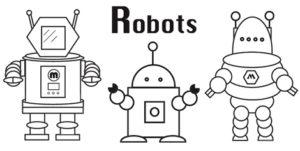This is a guest column by Rabbi Da-vid Rosenthal, from Aish Minnesota. Read Rabbi Da-vid’s Divrei Torah on his blog.
 I love my kids, but they can give me a lot of stress. They will test boundaries, always pushing the limits seeing when I really mean it. It can be extremely frustrating at times, but after reading something on this weekend’s parsha, I have quite a radically different perspective.
I love my kids, but they can give me a lot of stress. They will test boundaries, always pushing the limits seeing when I really mean it. It can be extremely frustrating at times, but after reading something on this weekend’s parsha, I have quite a radically different perspective.
There is an oft-asked question, why was Noach not chosen as the first Jew? The forefather of the Jewish people is known by all to be Avraham (Abraham). And although it is true that we all descend from Noach (he was the only man left standing (or floating)), he is not considered as the originator of Judaism. Why is that? What was the difference between the two great men? They were both righteous – the Torah states as much. What was their point of divergence?
Rabbi Rosenblatt writes that Noach was a Yes-man. G-d told him there was a flood coming to destroy everyone, and he should build a boat, and he said “Yes sir!”. That’s all he said. He didn’t argue, didn’t plead. He went along with G-d’s plans to a tee.
Compare this with Avraham’s reaction to the news that Sodom is going to be destroyed. He politely but firmly argues and manages to “bargain” G-d into saving the city if there were merely 10 righteous people to be found there. He is so brazen as to almost suggest that Hashem is not acting justly! Ultimately after much negotiations, Avraham concedes to G-d, and pushes no more, accepting the final ruling of Hashem as true and fair.
The idea of “arguing” with G-d is a central part of Judaism. We are not meant to be robots, not meant to passively watch as Hashem’s plan plays itself out. We are meant to take initiative – fight the trend, push the limits. Become a partner in fixing the world.
And you can see how deeply this is rooted in the Jewish soul. Ever heard the joke “Two Jews, three opinions”? Ever heard a group of Jews ordering at a restaurant? This is a deep part of who we are. We buck trends. We innovate. Einstein threw the entire perspective of science out the window with his Theory of Relativity.
On the other hand however, like Avraham, we must know that ultimately, Hashem has the final say, and what he decides is ultimately justice.
A story is told (I believe by Elie Wiesel) about a group of Rabbis convening a court case against G-d during the midst of the Holocaust. The conclusions of the proceedings was that G-d was found guilty. And after they issued the ruling, they all got up and davened (prayed) mincha (the afternoon prayer).
Questions are always valid, but it matters how we ask them. Do we seek to denounce, or understand? Do we seek to usurp, or to improve? We are meant to be partners with G-d in fixing the world, not robots or enemies. As such, we can challenge and fight, in order to bring out a better result for us and the whole world.
Going back to my children – if they didn’t test the boundaries, if they didn’t push back, they would be automatons. However they also need to know that ultimately, Abba (Dad) has the final say, whether or not they understand or agree with me.
Let’s take our role seriously and try to perfect ourselves and the world at large, knowing that Hashem is waiting for us to join Him in a concerted effort to perfect creation.
(Photo: Liquid Paper)

